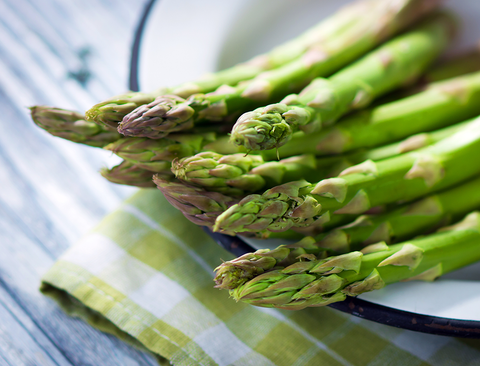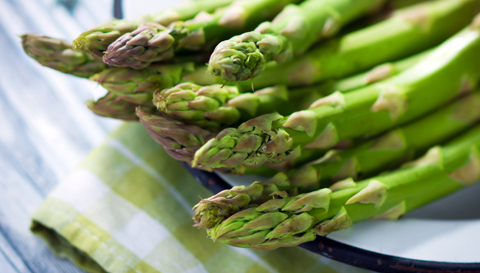
Unfortunately, most of us have experienced bloating at some point in our lives, if not on a regular basis. Either way, there’s no mistaking that heavy, uncomfortable feeling of having an inflated balloon mercilessly taking up residence in your stomach.
As uncomfortable as it is, the tight, swollen sensation is simply the result of excess gas trapped in the abdomen, especially in the intestines. When the gas doesn’t release, your stomach swells to accommodate the extra air, leaving you feeling bloated and overly gassy.
Where Does All That Extra Air Come From?
You’d be surprised how many seemingly insignificant factors contribute to excess air and therefore bloating. The good news is that you can change behaviors that contribute to bloating and gas. Let’s have an up close look:
Overeating: Remember how you felt last Thanksgiving after all of the dishes were cleaned and you’d already eaten your weight in potatoes? Overeating is the most common cause of bloating. When you eat or drink too much in one sitting, gas can quickly get trapped in your GI tract and create that too-full feeling.
Tip: Take care to eat slowly and mindfully, and stop as soon as you are satisfied; don’t wait until you are stuffed.
Food Intolerance: Some foods are easier for our bodies to digest than others and you may even be aware of certain foods that reliably give you problems. The common culprits are dairy, gluten, artificial sweeteners and fatty, fried foods. If you’ve had digestive issues for a while and you haven’t been able to solve the puzzle, there’s a good chance that other underlying food sensitivities are also at play.
Tip: You might want to work with your practitioner to do some reconnaissance work so that you can eliminate the food triggers that are causing your system to react.
Too little fiber: Prebiotic fiber feeds and nourishes the bacteria in your gut, shifting the composition of your gut microbiome to a more diverse and balanced one. The problem is that too little of this fiber in your diet can deplete your friendly flora, challenge regularity, and leave you more vulnerable to that unbearable full, bloated feeling. When you consider that our foraging ancestors consumed an impressive 50 to 100 grams of prebiotic fiber every day (and that most people today barely manage to get 20!), you can see why our guts are suffering.
Tip: It’s important to eat plenty of fiber-rich foods, like whole grains, apples, asparagus, and bananas to make sure you're consuming a substantial amount of prebiotic fiber. Even better? Add in an organic prebiotic powder supplement for an easy daily spoonful of prebiotic-rich fiber that your gut microbes will love.
Reduced enzymatic activity: We need digestive enzymes—produced mostly in the small intestine and pancreas—to break down the food we eat into absorbable nutrient pieces, such as vitamins, minerals, and amino acids. The problem is, as we age, our body can produce less enzymes than we need to fully digest and absorb nutrients, which can make bloating and gas more likely. Stress can also reduce the number of enzymes our body makes because digestion takes a back seat to survival when we are in fight-or-flight mode.
Tip: Fortunately, you can increase the number of helpful enzymes in your gut by eating enzyme-rich raw foods and taking a high-quality enzyme supplement with your meals. Set aside some time to meditate every day; relaxing your nervous system will take you from “fight or flight” to “rest and digest” in no time.
Candida Issues: Normal yeast growth is crucial to overall wellness, and healthy levels of candida help support our digestive function. However, when candida levels are unbalanced, we can experience uncomfortable digestion, gas, and bloating.
Tip: Yeast feed on sugars, so limit your intake of alcohol, sugar, and empty carbs to balance candida growth.
Not enough water: Water keeps everything moving and is critical for healthy digestion. Adults should drink approximately two liters of water each day, but an estimated 75% of Americans may suffer from chronic dehydration!
Tip: Because water helps break down the foods you eat, staying hydrated—aim for a half a gallon of water per day—can work to keep things moving so you don’t get bogged down with bloating.
Your Microbiome Matters
No matter how much care you take to slow down and eat well, if you can’t adequately digest the food you’re eating and absorb the nutrients you need, bloating and gas are bound to stick around.
Did you know that the key to supporting healthy digestion—and a flat belly—is a balanced microbiome? Unfortunately, our modern and hectic lifestyles often contribute to the depletion of our beneficial bacteria. Diets full of processed foods, aging, stress, exposure to antibiotics, environmental toxins, and even our daily antibacterial products can cause the number of probiotics in your body to dwindle.
And, if the good guy probiotics in your microbiome aren’t plentiful, they can’t effectively carry out their life-supporting duties, and your digestion, immune system, and even the way you think and feel can become challenged (cue the bloating and gas trouble that makes you feel like you’ve swallowed a bowling ball).
Help Keep Your Tummy Comfortable With Probiotics
Supplementing with a high-quality probiotic formula is an easy way to support your health from the inside out so you can maintain healthy, comfortable digestion.
You see, the probiotic bacteria in your gut carry out countless supportive functions that encourage your digestive and overall health, such as:
• Helping you break down and absorb nutrients from your food
• Producing B vitamins, lactase, and other enzymes
• Supporting your immune system
• Helping your cells communicate
• Producing natural antibacterials to help keep unwanted microorganisms in check
Furthermore, studies indicate that certain probiotic strains can directly reduce occasional bloating and gas. Patients in one study were given a fermented dairy product containing Bifidobacterium for four weeks. At the end of the trial, they reported a measurable decrease in bloating and distension1. In another study, 85% of subjects who consumed a multi-strain probiotic formula twice a day for four weeks reported bloating relief2.
Because a variety of factors in our modern culture are continuously waging war on our microbes, supplementing with a high-quality daily probiotic is a wise way to maintain some of the most beneficial species of good bacteria within your gut environment.
Hyperbiotics PRO-15 is a comprehensive, multi-strain probiotic formula that delivers 15 targeted strains of beneficial bacteria directly to your gut, where the good guys work hard to keep your digestion smooth and discourage gas and bloating.
Caring for your microbes is the single most important decision you can make if you’d like to live full and vibrant days—without an uncomfortably full stomach!
___________________________________________________________________________________________
References:
1. Agrawal, A., Houghton, L. A., Morris, J., Reilly, B., Guyonnet, D., Feuillerat, N. G., . . . Whorwell, P. J. (2009). Clinical trial: The effects of a fermented milk product containing Bifidobacterium lactis DN-173 010 on abdominal distension and gastrointestinal transit in irritable bowel syndrome with constipation. Alimentary Pharmacology & Therapeutics, 29(1), 104-114.2. Jafari, E., Vahedi, H., Merat, S., Momtahen, S., Riahi, A. (2014). Therapeutic effects, tolerability and safety of a multi-strain probiotic in Iranian adults with irritable bowel syndrome and bloating. Archives of Iranian Medicine, 17(7), 466-470.
___________________________________________________________________________________________
Julie Hays is the Communications Director here at Hyperbiotics. Health writer and mama of two little girls, Julie's on a mission to empower others to live lives free of the microbial depletion many of us face today. For more ideas on how you can maximize wellness and benefit from the power of probiotics, be sure to subscribe to our newsletter.

